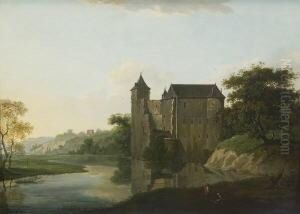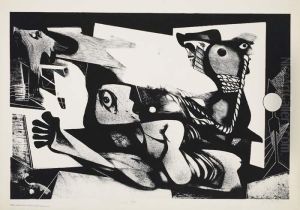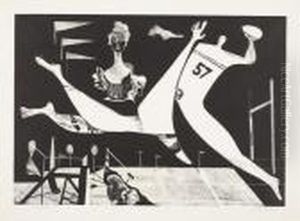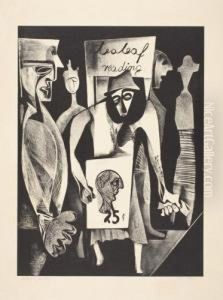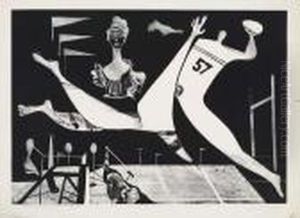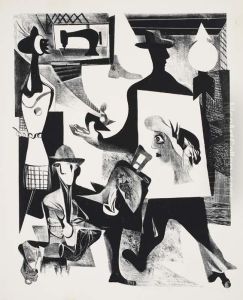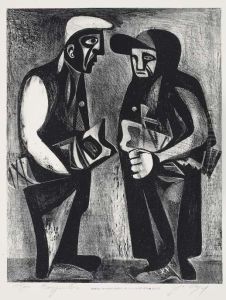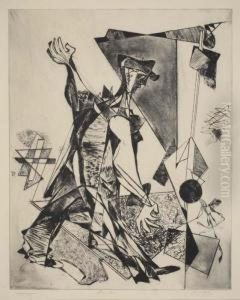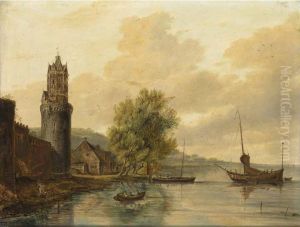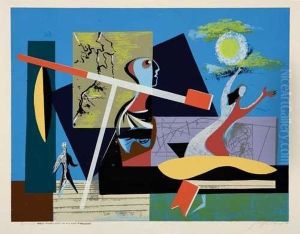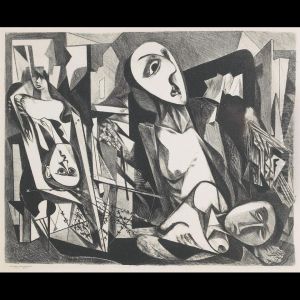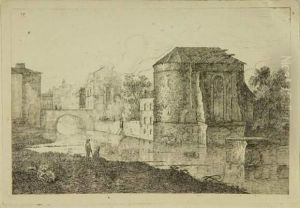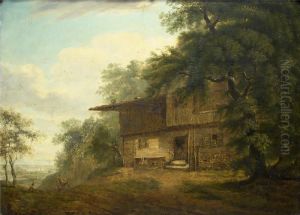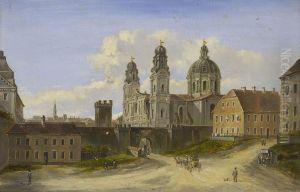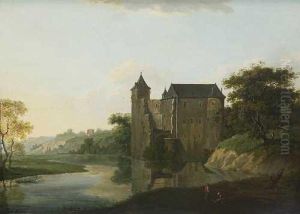Joseph Cogels Paintings
Joseph Cogels was a Belgian painter born on July 20, 1828, in Antwerp. His artistic journey began in the vibrant cultural landscape of 19th century Belgium, a period marked by a fervent revival of interest in the arts. Cogels was primarily known for his landscape and genre paintings, capturing the essence of Belgian rural life and its picturesque countryside with a meticulous attention to detail and a profound sense of realism.
Educated at the Royal Academy of Fine Arts in Antwerp, Cogels was a student under the tutelage of prominent figures such as Ferdinand de Braekeleer, a noted painter of his time. This education grounded him in the technical skills required for his craft, while also exposing him to the rich artistic traditions of the Flemish region.
Throughout his career, Joseph Cogels exhibited a deep commitment to capturing the unadulterated beauty of nature and the simplicity of peasant life. His works often depicted serene landscapes, farm scenes, and village gatherings, imbued with a sense of tranquility and timelessness. Though not as widely recognized internationally as some of his contemporaries, within Belgium and among connoisseurs of 19th-century European art, his work is appreciated for its contribution to the genre of landscape painting.
Cogels' artistic output was prolific, and his paintings were exhibited in various art salons and galleries across Europe, gaining him a respectable following. His attention to light, shadow, and the changing seasons, alongside his ability to render atmospheric effects, were particularly noted for their technical prowess and emotional depth.
Joseph Cogels passed away on December 16, 1890, in Antwerp. Today, his legacy is preserved in the collections of several Belgian museums and in private collections around the world. His contribution to the Belgian art scene of the 19th century remains significant, as his works continue to evoke a nostalgic charm and a deep appreciation for the beauty of the Belgian landscape and its rural inhabitants.
